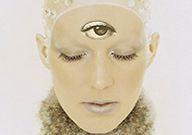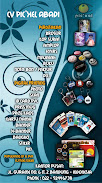by anthonynorth on September 2nd, 2007
 Yachtsman Chay Blyth once found himself in trouble in the Atlantic. He had overturned and was trapped for hours before rescue. At that very moment, his wife Maureen suddenly felt nauseous and knew he was in trouble. Parapsychologist Stanley Krippner remembers a similar feeling of knowing. As a boy he once wanted an encyclopedia. Uncle Max would buy it, he thought. But then another thought entered his head. Uncle Max was dead. Seconds later the phone rang. Uncle Max had, indeed, died. WHAT IS IT? The above are supposed cases of telepathy a word coined by researcher Frederic Myers from the Greek ‘tele,’ or distant, and ‘pathe,’ meaning ‘feeling’. The most common form of paranormal phenomena, poll after poll has confirmed a large percentage of the population claim to have experienced it. Often called extrasensory perception, or ESP, this term was first used by explorer Sir Richard Burton in 1870. Indeed, ESP is a better term for such knowledge, which is said to come in two forms - telepathy or clairvoyance. The former is said to be mind to mind contact, whilst the latter suggests the mind can go walkies about the world, visualising things not recordable by the senses. Many researchers have noted the line between these two information talents is so thin that they could simply be subtle manifestations of a single ability to perceive information. VARIATIONS ON A THEME Zoologist Sir Alister Hardy had an interest in ESP after meeting a Mrs Wedgwood during World War One. She spoke of someone looking at engineering plans with red and blue squares. Hardy had been studying such plans that afternoon. On another occasion she saw a large pink square. Hardy had been painting a white card pink earlier. There are many variations on the ESP trail. On 7 December 1918 Lt David McConnel flew out from Scampton after telling his friend, Lt James Larkin that he’d be home for tea. He never returned, dying in a plane crash. But at that exact moment, Larkin saw him in his doorway. They had a short conversation before McConnel left. Cases like this are often called crisis apparitions, involving hallucination born from extrasensory knowledge or feeling. At times they have saved lives. Typical is Dr S Weir Mitchell from l9th century Philadelphia. One evening he dozed off to be awoken by a girl at the door saying her mother was ill. He followed her through a blizzard to find her mother with pneumonia. He later found out the girl had been dead some time. In December 1952 Norfolk midwife Gladys Wright couldn’t get patient Joyce Goodwin out of her mind. Eventually she drove to her house to find her in premature labour. In 1955 Wisconsin housewife Joicey Hurth suddenly felt chilled, believing her daughter had just been in an accident. She rang the cinema she was going to to discover she had just been knocked down. UNCONSCIOUS INFORMATION How do we account for such phenomena? In this essay I will ignore the more exotic possibilities for telepathy, and see if there is anything to be learnt from the mind’s experiences within community. One possibility is to see the personal mind as simply part of a sociological ‘whole’. Consider the phenomenon of cryptomnesia, where obscure information the person didn’t realize he had can be accessed. Such a talent offers evidence that we access everything our senses can sense. Those things that are not required pass immediately into the unconscious, only retaining in the conscious that information we require. A SOCIAL MIND This suggests we have a massive amount of information in the unconscious that is not ‘ours’. For instance, if we input information on every conversation we hear while walking down a busy street, we have information not concerning just ourselves. Indeed, it does not only concern those who were holding the conversation. They could be talking about a third party, who had given information about another party. The combinations of unrelated information in the mind could therefore be phenomenal. The problem with this possibility is that there appears to be no evolutionary requirement for such a talent. Yet if no filters exist to stop this information entering the mind, it must exist in the mind, as cryptomnesia suggests. EVOLUTION AND MIND If evolution is correct, then this information must be part of the human experience, as evolution does not allow non required talents. Hence, its existence suggests a required purpose we have not, as yet, realized. Could this purpose be a mind function that analyses mass information in a social sense as well as personal? In effect, could the mind operate at a level that is, for want of a better word, communal? If so, then we are approaching an understanding of a communal mind within the personal that accesses information at a level that can only be classed as extrasensory in terms of what we consciously realize we have. THE CONNECTIVE PROCESS We can see a process here analogous to the latest theories of how mind works. Theorists such as Francis Crick have argued for the existence of consciousness neurons that allow thought processes to come into being. Thought, in this view, is seen as emerging from the combined actions of millions of single cells. At some point in the process, a form of consciousness emerges from the sheer numbers of neurons involved. If we think in terms of an entire population, could a critical mass of information within the social mind spark a social consciousness in its own right, allowing ‘attention’ to retrieve information based on information concerning social interaction? BIRTH OF THE PSYCHIC In the above we are beginning to see the possibility of a social, communal consciousness sparking in the personal mind, based upon the sum total of information we have accessed from unconscious perception of the world. As in the idea of existing mind theory, a point comes where connections spark consciousness. If we place this possible mechanism upon society as well as mind, I suggest a similar process can occur. Such a process could well provide information by deduction that, to all intents and purposes, would appear to be telepathic. And in sparking such a communal consciousness, the person has literally become psychic. © Anthony North, September 2007 |

0 comments:
Post a Comment